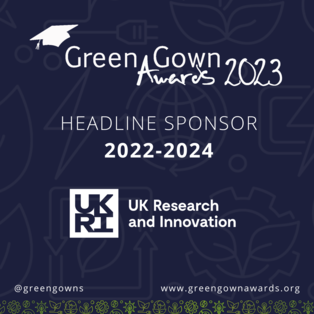Home »
Events »
Protecting British Pollinators: Addressing Long Term Threats to Bees and Pollinators
Protecting British Pollinators: Addressing Long Term Threats to Bees and Pollinators
25th Mar 2021 09:30 – 13:00
Recent difficulties around the transportation of bee populations due to border constraints imposed by Brexit and the COVID-19 pandemic have underlined the increasing scarcity of native pollinators in Britain, and the potential threat this poses to the British agricultural industry. Three quarters of British crop species either rely on pollination for seed production, or benefit from it in increased yield and quality. However, the UK’s honeybee population is insufficient to supply more than a third of agricultural demand for pollination services, according to the University of Reading. Wild bees and pollinators therefore play a vital role in crop pollination - but research suggests they have declined in diversity and occurrence over recent decades. Defra’s 2020 biodiversity indicator for UK pollinators, measuring wild bees and hoverflies, shows a decline of 30% over the last 50 years; and a study from 2019 found that these pollinators have now disappeared from a quarter of the places in which they were observed in 1980.
This symposium will therefore provide an opportunity for local authorities, environmental organisations, conservation practitioners, beekeepers, farmers, and other key stakeholders to analyse current government pollination policy, develop potential strategies to reverse the decline of British pollinators, and share best practice in the protection and management of bee populations.
Program
- Review recent government strategies and legislation affecting UK pollinators and discuss their potential impact.
- Discuss the uses and effects of pesticides in British farming and evaluate alternatives.
- Assess the challenges of policy making for issues with longer-term outcomes, and discuss how they might be overcome.
- Identify other major barriers to addressing declining bee populations and discuss potential strategies to combat them.
- Learn about best practices for pollinator protection and integrated pest management.
- Consider the economics of protecting pollinators, including the funding of monitoring and research programs.
- Develop strategies for increasing public awareness about the importance and decline of pollinator species.
- Compare UK pollinator protection strategies and outcomes to other countries, and consider pollinator decline and protection as an international issue.
For full details, click
here.
View this event on the EAUC website →





 Except where otherwise stated, content on this site is
licensed under a Creative Commons Attribution 3.0 License.
Except where otherwise stated, content on this site is
licensed under a Creative Commons Attribution 3.0 License.
